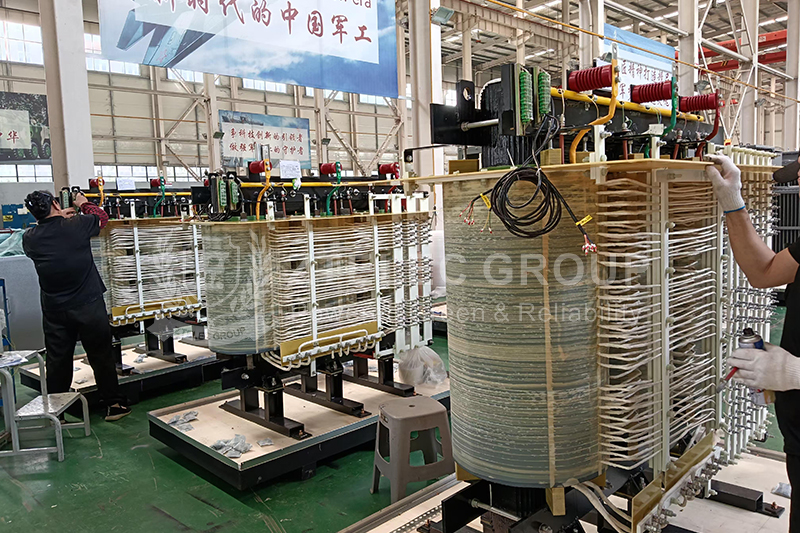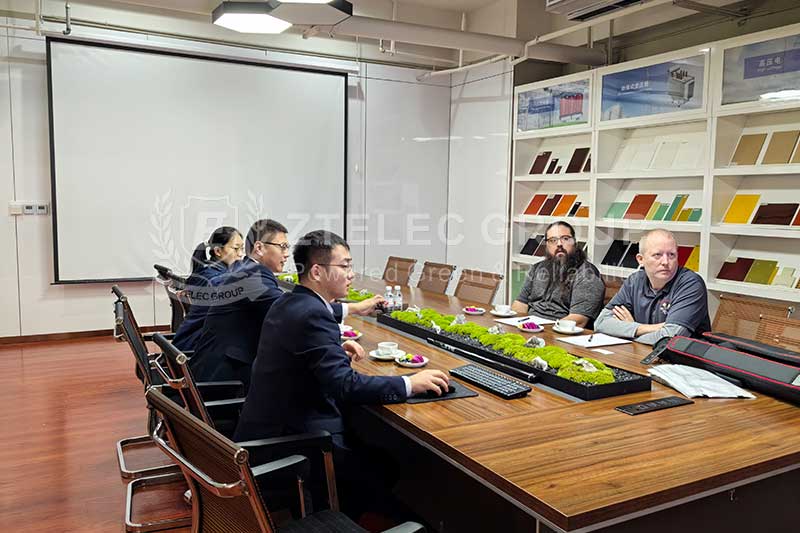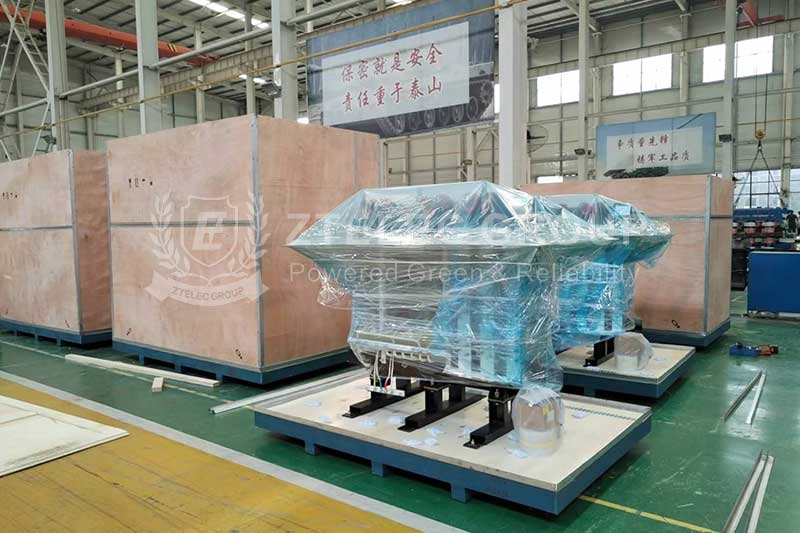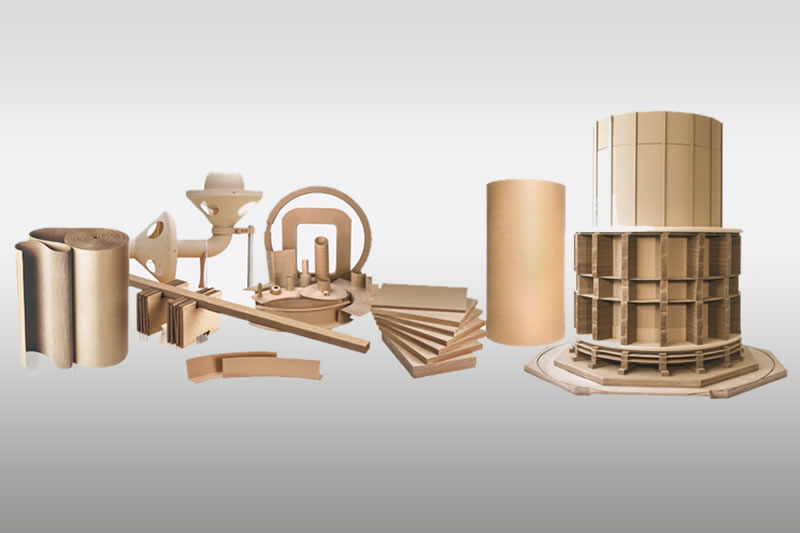Characteristics and Design of Epoxy Resin Transformers
In modern power systems, transformers play a key role as crucial electrical devices responsible for the transmission and transformation of electrical energy. With technological advancements and increasing demand for electricity, traditional oil-immersed transformers have gradually revealed deficiencies in safety, environmental friendliness, and lifespan, prompting the widespread application of epoxy resin transformers. This article will explore the characteristics of epoxy resin transformers and the composition of their design, providing a reference for a deeper understanding of this emerging technology.
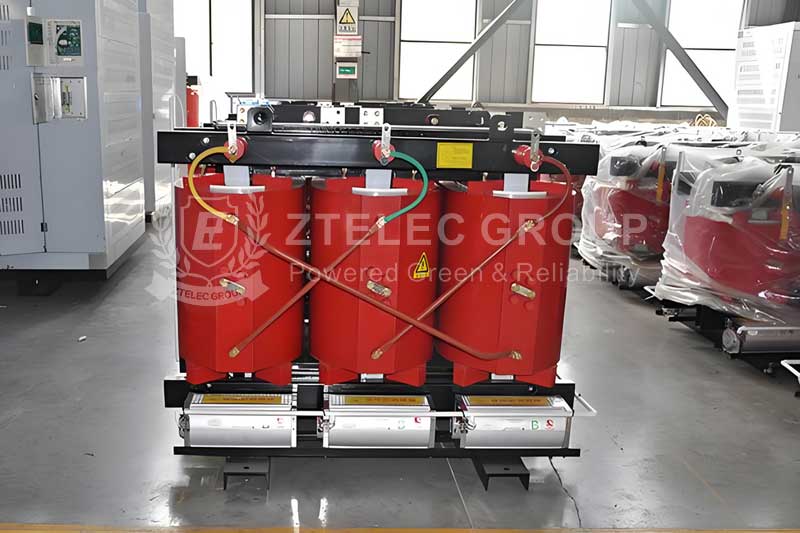
Characteristics of Epoxy Resin Transformers
1. Superior Insulation Performance
Epoxy resin possesses excellent insulation properties that effectively prevent short circuits and leakage currents. Compared to traditional oil-immersed transformers, the insulation medium of epoxy resin transformers exhibits higher stability, maintaining performance over a wider range of temperatures and humidity. Whether in high-temperature, humid, or low-temperature environments, epoxy resin transformers can operate stably, ensuring the safe operation of the power system.
2. Fire and Explosion Resistance
Due to the non-flammable nature of epoxy resin, epoxy resin transformers offer significant advantages in safety. Oil-immersed transformers are prone to fires and explosions during faults, while epoxy resin transformers mitigate this risk. Additionally, the use of epoxy resin allows the equipment to perform more stably under high temperatures, effectively reducing the likelihood of fire incidents.
3. Environmentally Friendly
The manufacturing and use of epoxy resin transformers do not cause environmental pollution. This is because they do not contain any petroleum-based materials, thus avoiding the potential oil leaks common in traditional transformers during operation. Therefore, epoxy resin transformers are favored in today’s society, where environmental awareness is increasingly important.
4. Compact and Lightweight
Compared to traditional transformers, epoxy resin transformers have significant advantages in size and weight. The highly efficient insulation properties of epoxy resin allow for the same electrical performance to be achieved in a smaller space, providing more possibilities for applications with limited space. Moreover, the lightweight feature facilitates easier installation and transportation, reducing overall logistics costs.
5. Low Maintenance Costs
Epoxy resin transformers significantly lower maintenance costs due to their moisture-proof, dust-proof features and the absence of a need for periodic insulation oil replacement. Compared to traditional transformers, epoxy resin transformers greatly reduce the frequency of routine maintenance, enhancing their economic viability during long-term operation. Furthermore, the high durability of epoxy resin contributes to a relatively low failure rate, thereby decreasing downtime and repair expenses.
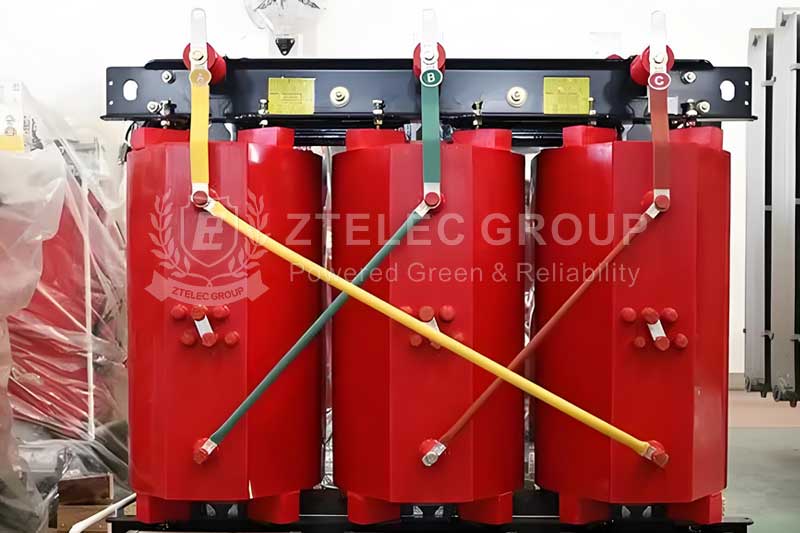
Design of Epoxy Resin Transformers
The design of epoxy resin transformers primarily consists of several components:
1. Windings
The windings are an essential part of the transformer, and epoxy resin transformers typically use copper or aluminum coils. The windings are impregnated and cured, then wrapped in epoxy resin. This process not only enhances the mechanical strength of the windings but also improves their insulation performance and moisture resistance.
2. Core
The core is a key component in the energy conversion of epoxy resin transformers, commonly made from silicon steel sheets. High-quality core materials can reduce energy losses and improve transformer efficiency. The core in epoxy resin transformers is also treated specially to enhance its corrosion resistance and mechanical strength.
3. Sealed Structure
Epoxy resin transformers employ a sealed structure, with housings typically made from corrosion-resistant and waterproof metals or composite materials. This design not only provides excellent protection for the equipment but also effectively reduces the impact of external environments on normal operation. Moreover, this sealed structure effectively isolates external vibrations, dust, and moisture, extending the service life of the equipment.
4. Cooling System
Although epoxy resin has good thermal conductivity, the internal temperature of the transformer still needs to be effectively controlled during high-power operation. Therefore, epoxy resin transformers are usually equipped with various cooling methods, such as air cooling or water cooling systems, to ensure that the transformer dissipates heat normally under high-load conditions and maintains efficient operation.
5. Monitoring Devices
To ensure the safe and stable operation of epoxy resin transformers, various monitoring devices have emerged. These devices monitor parameters such as temperature, load current, and voltage in real-time, promptly detecting abnormalities and issuing alarms, ensuring timely maintenance and management of the equipment, and enhancing overall safety.
With their superior performance characteristics and continuous technological innovation, epoxy resin transformers have increasingly become indispensable devices in modern power systems. Their exceptional insulation performance, fire and explosion resistance, environmental friendliness, and low maintenance costs provide extensive market potential in various applications. As electricity demand continues to grow, the design and technology of epoxy resin transformers will also evolve to meet future demands for higher safety and environmental standards. Through optimized design and material selection, epoxy resin transformers are poised to play a more significant role in the advancement of the global power industry.
- more+releated article
- 2025-12-13How to Select and Use Phenolic Cloth-base Lami
- 2025-12-13How Much Does Bakelite Sheet Cost? 2025 Price
- 2025-12-13Why are most 3240 epoxy boards yellow?
- 2025-12-13What are the Main Applications of FR4 Epoxy Bo
- 2025-12-13Why Does the Price of Insulating Paperboard Va
- 2025-12-13Heat-Resistant DDP Insulation Paper
- 2025-12-13Comparison of Heat-Resistant DDP Insulating Pa
- 2025-12-13G10 and FR4 Epoxy Boards: Commonly Used for Ge
- 2025-12-13The Price of Heat-Resistant DDP Insulation Pap
- 2025-12-13How to Choose Epoxy Laminate Materials for Gen

